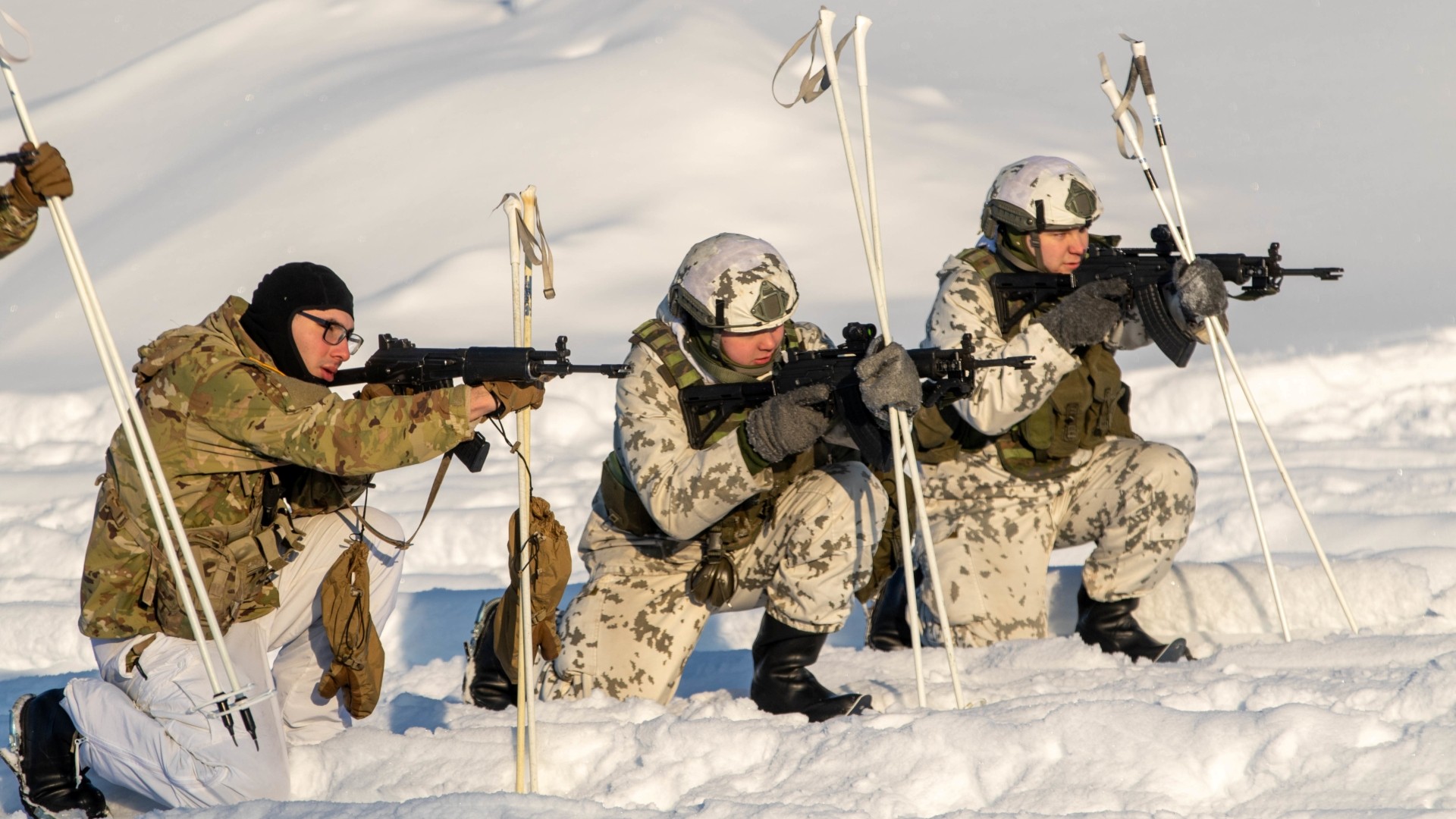The Arctic Heats Up
U.S. Army photo by Pfc. Kaylan Joseph
This is an interview with journalist Sergiy Slipchenko, who runs the Arctic Pod, a weekly newsletter and podcast dedicated to covering the geopolitics of the Arctic region.
The Arctic is changing fast. The region has heated up almost four times quicker than the rest of the world over the last 40 years, and the consequences are soon to become direly apparent. Dangerously high sea levels; more extreme weather events; ecosystem collapse—it’s all on the way. But, while ordinary, sane people may despair over this coming dystopia, there are plenty of cold-hearted realists who spy an opportunity amid the devastation. As the ice melts, it will become easier to access the vast, untapped riches of the area. Sprawling deposits of rare minerals, oil and gas will become available for extraction, while, on the other side of this same bleak coin, new shipping routes with the potential to alter the balance of the global trading system are going to open up. It’s bad news for most of us on Earth, but a small few are going to get very rich.
As Donald Trump has returned to the U.S. presidency, he is doing a fair amount of rambling about, among other things, his desire to absorb Greenland and Canada into the United States. While, as ever, the specifics of his babble aren’t to be trusted or even fully understood, his general statement of intent to take two Arctic nations, considered alongside his environmentally disastrous moves to increase the resource exploitation of Alaska, do hint that he understands perfectly well the growing geopolitical importance of the Arctic.
But he is not alone.
Russia, as with the Soviet Union before it, is a powerful presence in the Arctic, which, given how much of its territory is in the region, is natural enough. But Canada, Denmark—which bears sovereignty over Greenland—Norway, Sweden, Finland, and Iceland are all, too, considered Arctic states with a say over how the region is governed. And it gets more complicated still, as other nations are also trying to dig their claws in, most notably China, which has taken to calling itself a “near-Arctic state,” which plays rather hard and loose with the meaning of the word “near.” There’s a competition brewing in the Arctic, and the great powers of the day are getting ready to contest it.
To help us get a sense of the state of play in the Arctic today, we spoke with the journalist Sergiy Slipchenko, who specializes in the region and runs a website and podcast, Arctic Pod, which is dedicated to covering it. We asked him to elaborate on the Arctic’s strategic significance, the ways contemporary global powers are beginning to focus on it, and how tensions are already playing out.
His responses have been edited for length and clarity underneath Splinter’s questions in bold.
What makes the Arctic so important to the world’s great powers?
The Arctic was important previously in the Cold War, when nuclear war was more of a concern, because, if you look at the map, Russia, the U.S., Canada—they’re close to each other. Sending a ballistic missile over from, let’s say, north of Russia to Canada or the north of the U.S., is not only quick, but also hard to detect. [The Arctic is] always going to be a defense issue while Russia is hostile towards the Western world.
-

-

-

-

-

-

-

-

-

-

-

-

-

-

-

-

-

-

-

-

-

-

-

-

-

-

-

-

-

-

-

-

-

-

-

-

-

-

-

-

-

-

-

-

-

-

-

-

-

-

-

-

-

-

-

-

-

-

-

-

-

-

-

-

-

-

-

-

-

-

-

-

-

-

-

-

-

-

-

-

-

-

-

-

-

-

-

-

-

-

-

-

-

-

-

-

-

-

-

-

-

-

-

-

-

-

-

-












































































































